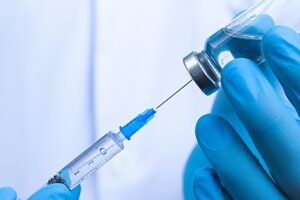Novo Nordisk has obtained an exclusive worldwide licence to EpiDestiny’s sickle cell disease (SCD) programme, EPI01.
Subscribe to our email newsletter
EpiDestiny is eligible to receive more than 400 million US dollars in upfront, development and sales milestone payments and will get royalties on net sales. EpiDestiny and Novo Nordisk will collaborate to develop EPI01 in SCD and beta-thalassaemia. EpiDestiny retains all rights to continue development of EPI01 in oncology.
Increasing levels of foetal haemoglobin (HbF) have important clinical benefits in SCD and beta-thalassaemia patients1 . Elevated HbF correlated with increased red blood cell half-life, reduced number of pain crises and increased life expectancy1 . EPI01 is a novel, orally available, disease-modifying therapy to increase HbF and interrupt SCD pathophysiology
EpiDestiny recently completed a phase 1 trial with EPI01 in SCD patients demonstrating increased HbF expression and safety after eight weeks of administration in a small patient cohort2 . The clinical observations demonstrated the potential for EPI01 to serve as a safe and highly meaningful disease-modifying therapy for SCD.
Novo Nordisk executive vice president and chief science officerMads Krogsgaard Thomsen said: “This is a great opportunity for Novo Nordisk to enter into a new therapeutic area closely related to our existing biopharmaceutical business and thereby utilise our core R&D and commercial capabilities to make a significant difference for patients living with a serious chronic disease.
“We are looking forward to working closely with EpiDestiny and their great network among sickle cell disease experts and the sickle cell community. We are confident that together we can make a significant difference for SCD patients and their families globally.”
Sickle cell disease (SCD)3 , is among the most common inherited diseases affecting mostly people of African and Asian origin4 , with an estimated 30 million cases worldwide. SCD is caused by mutations in the gene for the haemoglobin beta chain that carries oxygen in red blood cells.
The resulting sickle haemoglobin molecule forms large fibrils in red blood cells which renders red blood cells rigid and deformed (sickle-shaped). The sickle-shaped red blood cells tends to aggregate and can block small blood vessels, lead to chronic anaemia, decreasing oxygen delivery and damaging multiple tissues and organs. Damage to organs such as the spleen impairs immunity and causes high risk of infections such as pneumonia.
EPI01 is an oral, fixed dose formulation of a DNA methyl-transferase enzyme 1 and cytidine deaminase inhibitor, decitabine and tetrahydrouridine, which has potential to work by increasing the amount of foetal haemoglobin that can substitute the defective haemoglobin in SCD patients, thereby intending to prevent the deformation of the red blood cells and improving the oxygen level in the blood.
EpiDestiny has been granted Rare Pediatric Disease, Fast Track and Orphan Designations by the U.S. Food and Drug Administration (FDA) for EPI01.
Source: Company Press Release
 Advertise With UsAdvertise on our extensive network of industry websites and newsletters.
Advertise With UsAdvertise on our extensive network of industry websites and newsletters.
 Get the PBR newsletterSign up to our free email to get all the latest PBR
news.
Get the PBR newsletterSign up to our free email to get all the latest PBR
news.

